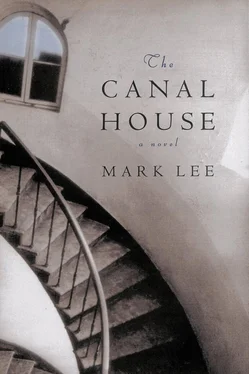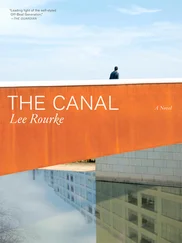“I sent out over four hundred shots—with captions. Some things didn’t go right and Barbieri got a better picture. You’re a photographer. You know how it is.”
“It’s not just the earthquake photos. They’ve been complaining about your stuff since you came back from Nigeria. These days every photographer with a sat phone and a digital camera can send us pictures five minutes after they press the button. You’re competing with every other shooter in the world.”
“I know that, Carter. I’ve met them. They’re all twenty-six years old with tattoos.”
“News organizations don’t want full-time employees or even contract photographers. If you expect a paycheck from Newsweek , then you’re going to have to provide images that are consistently unique.”
“I’ve risked my life for this goddamn magazine. You know that’s true.”
“I’m on your side, Nicholas. There’s no reason to get angry. Maybe you’re just tired, burned out from the traveling. If you want, I can transfer your contract to the Washington Bureau. Life is a lot easier there, just one long photo op.”
I imagined myself standing in a pack of photographers, taking shot after shot of the president in the Rose Garden. What every photographer wants is that unguarded moment when a person’s defenses are down and you can capture an image so intimate that it connects with anyone who sees it. But successful politicians have learned to conceal their emotions in public. Working in that world would be like photographing wax dummies.
“No. I don’t want a job like that.”
“All right. It’s your choice.” Carter stopped in the middle of Lovers’ Walk and looked around at the green fields of Hyde Park and the rush-hour traffic grumbling up Park Lane. “Do you know an American journalist named Daniel McFarland?”
“Sure. He was the one covering the fighting in northern Iraq after the Gulf War, and then he worked in the Balkans. We were in Bosnia at the same time, but we never actually met. I used to see him drinking with a bunch of Polish photographers at the Café Metropole. Wasn’t Victor Zikowski killed working with McFarland?”
Carter shrugged and resumed walking. “McFarland has a five-year contract with the Daily Telegraph , but he also does features for the Washington Post . John Scofield deals with him quite frequently.”
The Post was owned by the same parent company as Newsweek and they shared offices on Park Street. Scofield played squash every Wednesday with Carter, and I could tell they had discussed my awkward career.
“So how does McFarland connect with me?”
“Four months ago a group of tourists were kidnapped from a game park in northern Uganda by some guerrillas called the Lord’s Righteous Army. They’re led by a local prophet, Samuel Okello.”
“I’ve read about him. He kidnaps children from the villages.”
“The Red Cross, the Ugandans, and our State Department have tried to contact this group, but they haven’t succeeded. The British sent in military advisers to help the Ugandan army, but the guerrillas killed twenty-three of their soldiers in an ambush. One of the hostages is a librarian from Madison, Wisconsin. Little kids are tying yellow ribbons to a tree on her front lawn. It would be a wonderful story if a journalist could track down Okello and interview him.”
“And McFarland wants to try?”
“He thinks it’s possible.”
“Who’s going to pay him to do it?”
“He’ll sell the story to the Washington Post and the Telegraph . We’ll get magazine rights.”
“And I’d be the photographer?”
“Exactly. McFarland takes a few risks, but he’s been very successful. There’s a good chance he can pull this off.”
In our business “takes a few risks” meant “he’s completely insane.” I didn’t know if Carter thought he was doing me a big favor, but the situation was obvious. Daniel McFarland was looking for a photographer because everyone else had turned him down. If the Lord’s Righteous Army had already kidnapped some tourists, it would enjoy capturing some foreign journalists. We might find Samuel Okello’s camp, but we wouldn’t be able to leave.
“Do you want to go to Uganda? I told New York that you’d spent a lot of time there during the Rwandan civil war.”
“I spent three days in Kampala, then crossed the border at Kabale.”
“Sounds like you’re an expert.”
Carter glanced at me, waiting for my decision. Whenever there’s a big choice in life, it’s usually no choice at all. I hesitated for a few seconds, then turned and walked back to the cherubs. “Do I get expenses?”
“A plane ticket plus fifteen hundred dollars.”
“When do I leave?”
“First, you’ve got to fly down to Rome. McFarland wants to meet and see if you can work together.”
“I can work with the devil, given a limited time frame.”
“McFarland isn’t exactly the devil. But John says he’s very intense.”
“In other words, he’s crazy.”
Carter took out a handkerchief and flicked some dust off his shoes. “McFarland will bring you to the picture, Nicholas. You just have to take it.”
I walked Carter Howardback to his office, then caught a bus going to Bloomsbury. It was too damn depressing to sit in my hotel room so I walked across Montague Street to the British Museum. Most of the tourist groups were being herded toward the Elgin Marbles. I threaded my way through a crowd of Japanese high school kids, entered the Egyptian collection, and headed for the ground-floor gallery and the Shabaka Stone.
The stone is a chunk of black basalt that’s named after the pharaoh Shabaka who founded the Twenty-fifth Dynasty. It’s said to contain a complete account of the creation of the world, but someone carried the stone away from the ruins of Shabaka’s palace and used it to crush grain. A hand-sized divot was chipped out in the center of the stone and little channels radiated from that like the rays of the sun.
Sitting on a bench, I stared at the faint hieroglyphics rubbed away by some Bronze Age miller. I knew why Carter had hooked me up with Daniel McFarland. Journalists are like gamblers eager to rub up against a winner at the dice table. If Daniel McFarland had the luck to get a good story, then perhaps he could pass it on to me.
I made a reservation on Alitalia and flew down to Rome the next morning. Ann Weinstein had printed off some of Daniel’s old clips and I read them on the plane. There were two kinds of feature articles about the Third World: “Why? Oh, why?” and “Fancy that!” Daniel had come up with a different approach, a point of view that told the reader “These are the facts. What are you going to do about it?” During the Gulf War he had been one of the few journalists to report on the Kurdish uprising in northern Iraq. His article about the Kurds’ retreat to the Turkish border was nominated for a Pulitzer Prize. Daniel never placed political statements in any of his writing, but he explained how each army had acquired the guns and bombs used to kill civilians. When you read one of Daniel’s articles, you always felt uncomfortable—and a little angry—about what was going on.
I changed my money at Leonardo da Vinci airport, then took the train into the city. Newsweek wasn’t paying for the trip so I checked into a cheap hotel near the Stazione Termini. I took a shower, killed a few cockroaches, and tried to contact Daniel McFarland at his three phone numbers. Carter said that Daniel had a home in the countryside north of the city, but the phone rang forever and no one picked it up. The second number was linked to an office answering machine so I left a message there. The final number was for a cell phone, but I kept getting a perky recording in Italian.
Читать дальше












